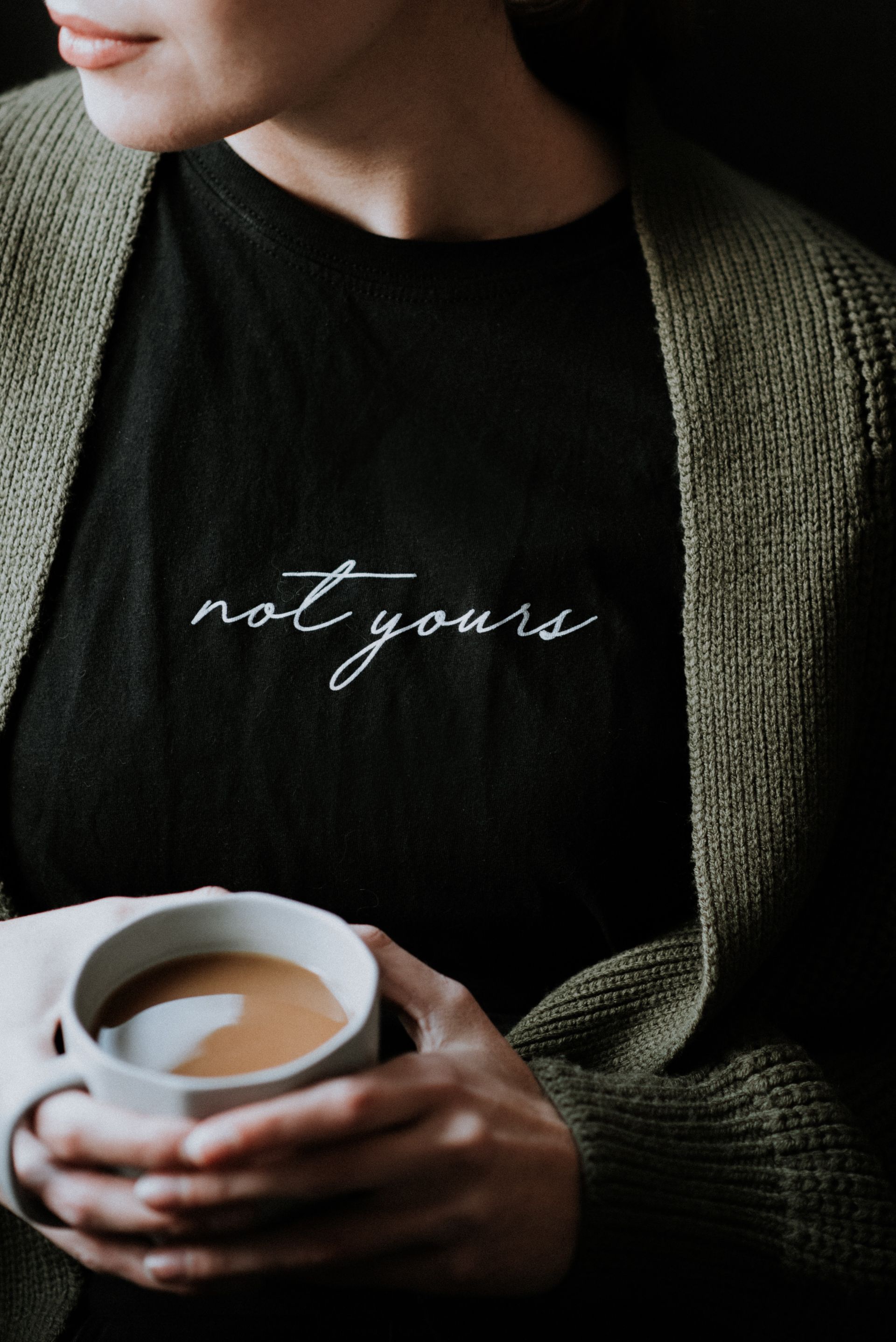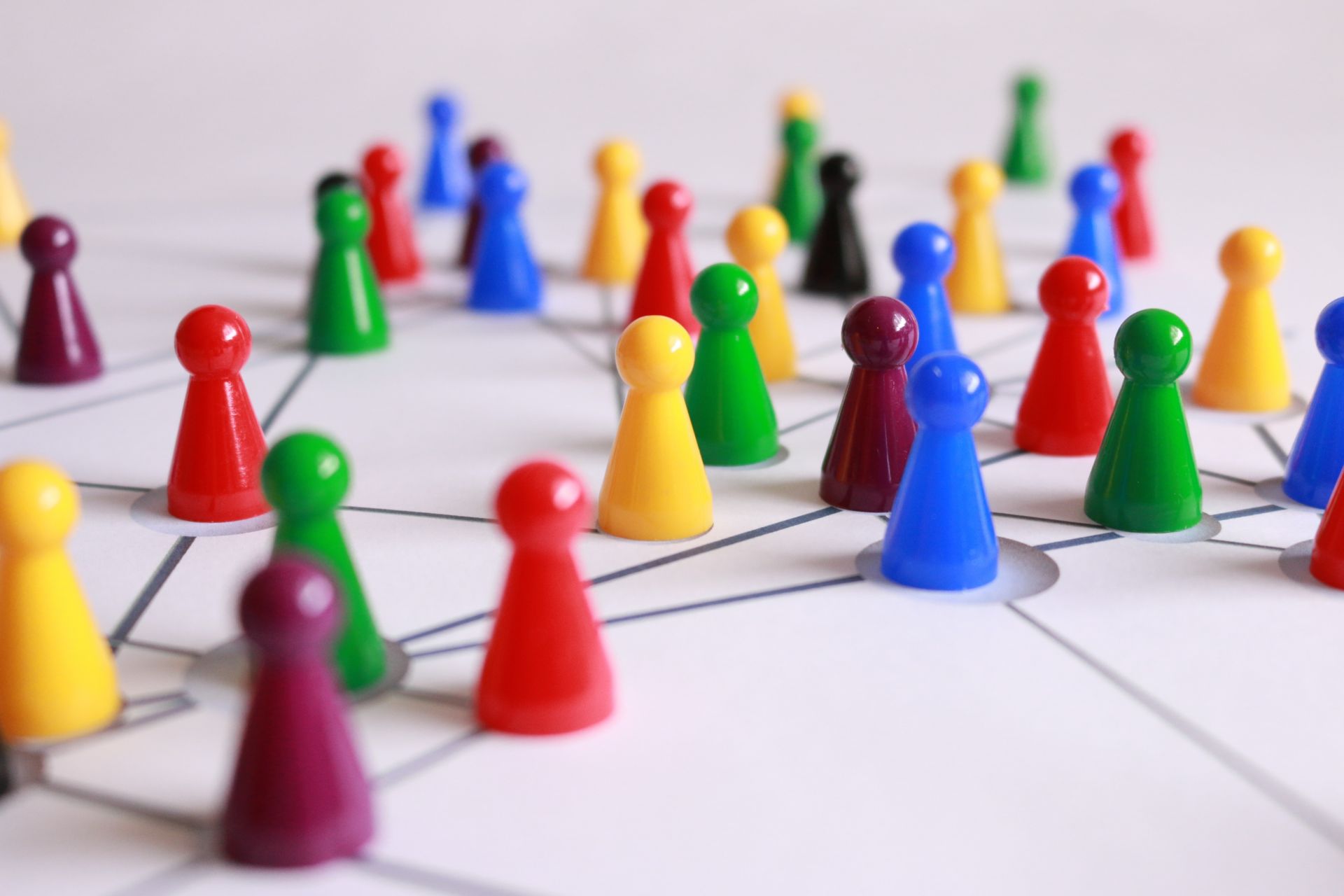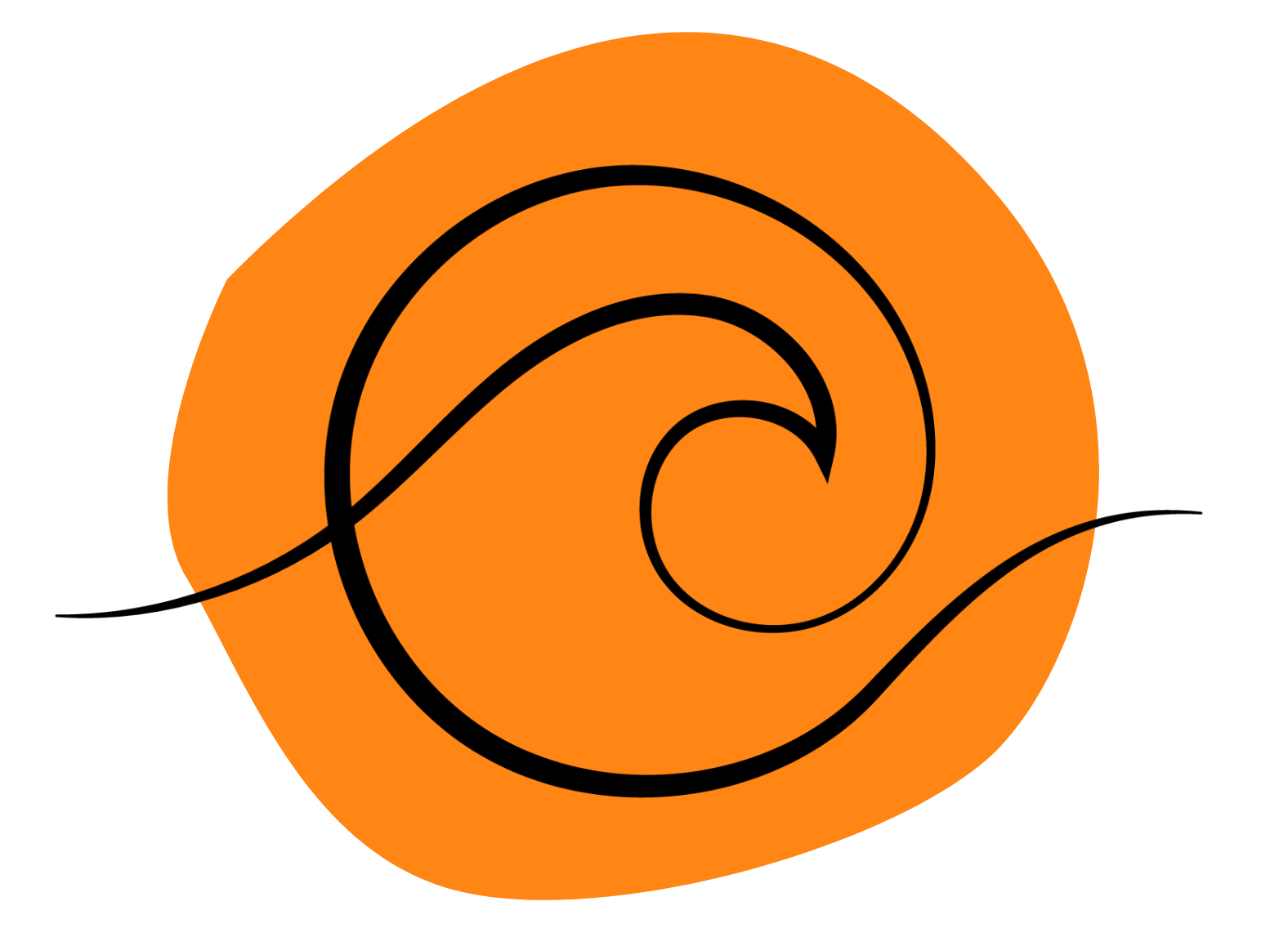'Is it safe? What are the dangers? Is it clean? Don't touch it, don't think about it, don't act. Do act, keep everyone safe, neutralise the thought, don't let people die, you should die, it's your fault, do more, give up, keep going, feel shame. You're bad.'
With OCD, living with 'her indoors,' that inner voice that dictated every action, overanalysed every thought and continuously hurled torrents of abuse my way was exhausting. 'Her indoors' demanded control over EVERYTHING, from pre-empting each potential hazard to maintaining moral purity in each thought or action. Leading to a decade spent lurching between survival and burnout, with the odd burst of manic happiness thrown in to keep me on my toes. Often I found myself at breaking point. Whilst I wanted to live a fulfilled and meaningful life, I felt completely lost at how to exist effectively, let alone search for meaning.
While my experience with OCD may be far removed from many people's reality, a number will resonate with my words. These disturbing thoughts aren't only for those trapped by OCD but part of the script for others with anxiety disorders and depression. I'm not unique in my ability to fall into a spiralling black hole.
Unhealthy thinking patterns, catastrophising (5 minutes late to get the kids from school? You will definitely end up in jail for negligence and your kids will wind up in care) and getting stuck in the 'what if'. A downward spiral of negative thoughts and emotions leave you feeling trapped, scared and desperately out of control. It saddens me that so many see this as a regular part of the human condition; I certainly did. But I am here to tell you that there IS another way – there is, in fact, an 'Owners Gide to Being Human'. I stumbled on it quite by accident, and it gave me the power to stand up to myself. This guide is Positive Psychology, and I will share the key 'take homes' that helped me take back control below.
With OCD, living with 'her indoors,' that inner voice that dictated every action, overanalysed every thought and continuously hurled torrents of abuse my way was exhausting. 'Her indoors' demanded control over EVERYTHING, from pre-empting each potential hazard to maintaining moral purity in each thought or action. Leading to a decade spent lurching between survival and burnout, with the odd burst of manic happiness thrown in to keep me on my toes. Often I found myself at breaking point. Whilst I wanted to live a fulfilled and meaningful life, I felt completely lost at how to exist effectively, let alone search for meaning.
While my experience with OCD may be far removed from many people's reality, a number will resonate with my words. These disturbing thoughts aren't only for those trapped by OCD but part of the script for others with anxiety disorders and depression. I'm not unique in my ability to fall into a spiralling black hole.
Unhealthy thinking patterns, catastrophising (5 minutes late to get the kids from school? You will definitely end up in jail for negligence and your kids will wind up in care) and getting stuck in the 'what if'. A downward spiral of negative thoughts and emotions leave you feeling trapped, scared and desperately out of control. It saddens me that so many see this as a regular part of the human condition; I certainly did. But I am here to tell you that there IS another way – there is, in fact, an 'Owners Gide to Being Human'. I stumbled on it quite by accident, and it gave me the power to stand up to myself. This guide is Positive Psychology, and I will share the key 'take homes' that helped me take back control below.

You are not your thoughts
Read it again.
Read it again.
You. Are. Not. Your. Thoughts.
The sooner you accept it, the sooner you can move forward.
Everyone thinks crazy, outlandish or scary thoughts at times. It's part of the human condition. We all have a built-in negativity bias that seeks out the worst. Habits in our thinking that make us miss vital information. A confirmation bias obsessed with proving our deepest fears and anxieties right - regardless of how outlandish they may be.
It's natural. We are hard-wired for survival, and our brain keeps us safe by scanning for every potential danger. When you have OCD, this innate function is in overdrive.
The best way to break these negative patterns is by getting to know Albert Ellis's ABC. The foundation of Positive CBT, the ABC model, teaches you the link between activating events (AE) – beliefs – and consequences.
When stuck in a problem, our belief about a situation (AE), not the situation itself, causes unhelpful consequences. Our thinking may not be accurate for all the reasons listed above. When big, unhelpful emotions and disjointed thoughts appear, remember our thinking can be inaccurate and obstructive.
Examine the situation; What is fact, and what is fiction based on your beliefs? Search for accuracy. Are your beliefs helpful or hindering? When you create psychological wiggle-room, accepting things may not be as they first appear; other possibilities begin to surface, highlighting that things may not be as desperate as they first seem.
From this, you can forge a new path forward.
The sooner you accept it, the sooner you can move forward.
Everyone thinks crazy, outlandish or scary thoughts at times. It's part of the human condition. We all have a built-in negativity bias that seeks out the worst. Habits in our thinking that make us miss vital information. A confirmation bias obsessed with proving our deepest fears and anxieties right - regardless of how outlandish they may be.
It's natural. We are hard-wired for survival, and our brain keeps us safe by scanning for every potential danger. When you have OCD, this innate function is in overdrive.
The best way to break these negative patterns is by getting to know Albert Ellis's ABC. The foundation of Positive CBT, the ABC model, teaches you the link between activating events (AE) – beliefs – and consequences.
When stuck in a problem, our belief about a situation (AE), not the situation itself, causes unhelpful consequences. Our thinking may not be accurate for all the reasons listed above. When big, unhelpful emotions and disjointed thoughts appear, remember our thinking can be inaccurate and obstructive.
Examine the situation; What is fact, and what is fiction based on your beliefs? Search for accuracy. Are your beliefs helpful or hindering? When you create psychological wiggle-room, accepting things may not be as they first appear; other possibilities begin to surface, highlighting that things may not be as desperate as they first seem.
From this, you can forge a new path forward.
The breath is the brake
Negative thoughts rarely happen without emotional responses. This emotional hijack takes our thinking offline, and we can end up in a downward spiral of stress, which shows up in our body (fuzzy thinking, sweaty palms, the shakes are a few responses).
When spiralling thoughts lead to all-out panic, you need to breathe. Controlled breathing kickstarts the 'rest and digest' part of the nervous system, slowing you down and keeping your thinking online. Easier in theory than practice, yet it is impossible to have a full-blown panic when you are in control of your breathing. So keep it slow and low! To really see the benefits of breathwork, incorporate it into some 'Loving Kindness' mindfulness practices. This type of meditation is scientifically proven to help you develop connection and compassion for self and others – leading to more meaningful relationships, heightened happiness and increased wellbeing.
Negative thoughts rarely happen without emotional responses. This emotional hijack takes our thinking offline, and we can end up in a downward spiral of stress, which shows up in our body (fuzzy thinking, sweaty palms, the shakes are a few responses).
When spiralling thoughts lead to all-out panic, you need to breathe. Controlled breathing kickstarts the 'rest and digest' part of the nervous system, slowing you down and keeping your thinking online. Easier in theory than practice, yet it is impossible to have a full-blown panic when you are in control of your breathing. So keep it slow and low! To really see the benefits of breathwork, incorporate it into some 'Loving Kindness' mindfulness practices. This type of meditation is scientifically proven to help you develop connection and compassion for self and others – leading to more meaningful relationships, heightened happiness and increased wellbeing.
Positive Emotions are a strategic tool for wellbeing.
The power is in the positive. Positive emotions are scientifically proven to cultivate wellbeing and develop our resilience. Through Intentionally seeking positive moments in your day, engineering positive environments or focusing on things we love, we find opportunities to explore, connect and grow.
The more we open ourselves to positive experiences, the more we will find.
Allowing yourself to try something for fun, say, a pottery class, can lead to a new passion and a new set of friends. In turn, gaining more people you can ask for help and a positive coping strategy to get absorbed in when things are tough. We cultivate resources for managing life. Leaning into positive emotions helps develop new skills, strengthen our connections with others and feel happier and more secure in the world. This upward positive spiral leads to positive affect - a propensity to deal with people and life's hardships in a forward-focused, realistic and optimistic way. By savouring that morning coffee or taking a few seconds to really be in awe of the magnificent trees on your way to work, you are creating a mental openness where positive emotions can take roots. So when your brain wants to swallow you whole, you can move towards those chinks of light.
The power is in the positive. Positive emotions are scientifically proven to cultivate wellbeing and develop our resilience. Through Intentionally seeking positive moments in your day, engineering positive environments or focusing on things we love, we find opportunities to explore, connect and grow.
The more we open ourselves to positive experiences, the more we will find.
Allowing yourself to try something for fun, say, a pottery class, can lead to a new passion and a new set of friends. In turn, gaining more people you can ask for help and a positive coping strategy to get absorbed in when things are tough. We cultivate resources for managing life. Leaning into positive emotions helps develop new skills, strengthen our connections with others and feel happier and more secure in the world. This upward positive spiral leads to positive affect - a propensity to deal with people and life's hardships in a forward-focused, realistic and optimistic way. By savouring that morning coffee or taking a few seconds to really be in awe of the magnificent trees on your way to work, you are creating a mental openness where positive emotions can take roots. So when your brain wants to swallow you whole, you can move towards those chinks of light.

The neurons that fire together wire together (there is always hope)
Your brain is not fixed.
From the day we are born to the day we die, our brain can change and grow. We have the power to decide in what direction. Utilising this knowledge to positively disrupt our thought patterns and create new neural pathways to take us to the positive and re-wire our thinking.
Neuropsychologists have developed strategies we can implement immediately to achieve this goal. Harnessing the power of mindfulness with reframing adverse memories/events can give us back mastery over our minds. How liberating to know that with knowledge and strategic application, we can plant seeds of positive wellbeing. Marry this with the general scientific consensus that our mental wellbeing is 40% genetic, 10% life circumstance, and 50% under our control. Suddenly, OCD is more translucent and not so permanent.
Your brain is not fixed.
From the day we are born to the day we die, our brain can change and grow. We have the power to decide in what direction. Utilising this knowledge to positively disrupt our thought patterns and create new neural pathways to take us to the positive and re-wire our thinking.
Neuropsychologists have developed strategies we can implement immediately to achieve this goal. Harnessing the power of mindfulness with reframing adverse memories/events can give us back mastery over our minds. How liberating to know that with knowledge and strategic application, we can plant seeds of positive wellbeing. Marry this with the general scientific consensus that our mental wellbeing is 40% genetic, 10% life circumstance, and 50% under our control. Suddenly, OCD is more translucent and not so permanent.
Step out of your thinking and into your superpower
Sometimes it's the first step that's the hardest, but it's the one to set you free. Keep the conviction that there is an 'Owners Guide', and it is through trusting the process time and again that you learn to turn the pages. Sinking into the power of positive emotions enables you to regain control.
Through awareness of the brain-body connection, unhelpful thinking patterns and the power of positive emotions, you can find a way forward. You can question 'her indoors' to see if your thinking is accurate. If it's not, you have the tools to reframe the thought and make lasting change. Whilst OCD may linger, it no longer consumes.
Personally, I now see my OCD as a superpower. My overactive survival instinct means I'm very good at noticing threat and acting when appropriate. By cultivating emotional regulation, critical thinking, and realistic reframes, I strategically plan for real dangers that others may overlook without being sucked under by the chaos in my mind. I am really good at grit. After years of controlling my thoughts and actions, I am excellent at seeing 'hard things' through. With developed self-awareness, It can be used in a healthy way. Empathetic and others focused, years of mental anguish has made me receptive to other peoples stories. I can relate and connect on a human level, strengthening support for all.
While uncontrolled OCD turned me inwards, isolated me and shut me down, educated OCD turns me outwards, creates a mental distance between 'me' and my thoughts, opens me up to others, makes me see the true beauty in life and (dare I say it) sets me free. If laying my trust in Positive psychology revolutionised my world, what is stopping it from doing the same for you?
Positive OCD: our superpower, and maybe our greatest gift?
Sometimes it's the first step that's the hardest, but it's the one to set you free. Keep the conviction that there is an 'Owners Guide', and it is through trusting the process time and again that you learn to turn the pages. Sinking into the power of positive emotions enables you to regain control.
Through awareness of the brain-body connection, unhelpful thinking patterns and the power of positive emotions, you can find a way forward. You can question 'her indoors' to see if your thinking is accurate. If it's not, you have the tools to reframe the thought and make lasting change. Whilst OCD may linger, it no longer consumes.
Personally, I now see my OCD as a superpower. My overactive survival instinct means I'm very good at noticing threat and acting when appropriate. By cultivating emotional regulation, critical thinking, and realistic reframes, I strategically plan for real dangers that others may overlook without being sucked under by the chaos in my mind. I am really good at grit. After years of controlling my thoughts and actions, I am excellent at seeing 'hard things' through. With developed self-awareness, It can be used in a healthy way. Empathetic and others focused, years of mental anguish has made me receptive to other peoples stories. I can relate and connect on a human level, strengthening support for all.
While uncontrolled OCD turned me inwards, isolated me and shut me down, educated OCD turns me outwards, creates a mental distance between 'me' and my thoughts, opens me up to others, makes me see the true beauty in life and (dare I say it) sets me free. If laying my trust in Positive psychology revolutionised my world, what is stopping it from doing the same for you?
Positive OCD: our superpower, and maybe our greatest gift?
author bio
Lucienne Miller
Lucie first came face to face with anxiety disorders in her teens. OCD became her closest friend until her early 30's, when she came across resilience and positive psychology. Then everything changed. She had found a way forward. From this turning point, Lucie regained control. She is now a mum of four, wife, business owner and eternal student. Finally she has discovered the strength in her stress.
Write your awesome label here.

